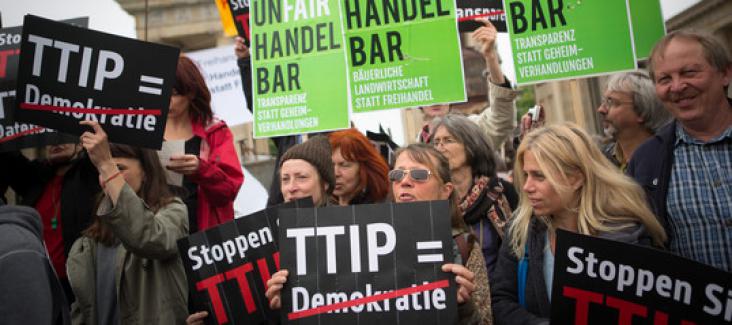A small revolution
The requirements for this concept and its legislative implementation are high: finally, the notion of ‘People’s Power’ was going to be accepted and practiced by a transnational political union. And indeed, the sheer existence of this new people’s initiative comes close to a small revolution that also influences those member states, where citizens have been relegated to the status of bystanders in the periods between parliamentary elections. And that’s not all: by introducing the option to gather the necessary signatures online (via the EU’s online collection system), Brussels has even surpassed well-developed democracies with strong people’s rights, like Switzerland.
With this decision, the legislative process has become top priority (at least partially) on the currently highest political level. This means European citizens have a say in the process. This new option was received with open arms; only a few days after it was launched in spring 2012, the first European citizens’ initiatives were submitted to the official registration site of the Commission. Among them were the trade unions’ initiative against privatising water resources; a proposition for better exchange programmes launched by young Europeans; and the conservative circle’s demand to radically cut funding for stem cell research.
Water privatisation, stem cell research…
In total, more than 50 European initiatives have been registered so far, however, only three of them have met all requirements for a final assessment by the Commission. Two initiatives, namely the ones against water privatisation and stem cell research, have already been answered.
All this sounds like a great success for more democracy; if there weren’t all the problems, hurdles and resistances that have torpedoed the initial interest of the public and cut the number of initiatives. Currently, only two initiatives are at signature collecting stage with less than 8,000 EU citizens supporting them. In other words: the great tool of the European Citizens’ Initiative is going through its biggest crisis so far, and without reforms and political efforts it will probably die a long and painful death.
It’s not only the principle of modern democracy and reason that are in favour of the further development of active citizens’ participation in the EU though. There are countless people and organisations that would love to use this new tool if it only were possible. While the old European Commission under José Manuel Barroso did everything to avoid this imposed citizens’ participation, the new boss in Berlaymont, the former prime minister of Luxembourg Jean-Claude Juncker, has kept a low profile regarding the citizens’ initiative.
Almost 50 per cent rejection
While under Barroso vice president Sefcovic came out as a supporter of the initiative hiring a few extremely competent people, almost half of all registered initiatives have not made it any further than the office of Juncker’s general secretary, Catherine Day. In her rejection letters, Ms Day argued that most of the legislations proposed by EU citizens were not within the competences of the Commission. However, her approach was so inconsistent that the European Court of Justice in Luxembourg currently has to deal with six lawsuits on rejected draft legislations. The latest case is the European Citizens’ Initiative on the Transatlantic Trade and Investment Partnership (TTIP).
The committee behind the ‘Stop TTIP’ initiative did not shy back though and managed to gather almost one million signatures unofficially. It makes you wonder why during the preliminary talks for the registration of the initiative, the Commission and the initiators were unable to agree on the right wording allowing a formal dialogue within the framework of a registered citizens’ initiative. At the same time, the current case has shown that this new popular right can formulate and exploit fascinating and engaging questions regarding more democracy.
What next? Fortunately, the EU is going through some changes, and it remains to be seen whether Juncker’s new right hand, the former Dutch foreign minister Frans Timmermanns, will be able to get things moving again and whether the Commission will adapt a new citizen-friendly approach. So, it’s a good thing that the European Citizens’ Initiative is subject to revision, which has to commence in 2015. This could be a chance to inject new life into the promising tool by pulling down the hurdles, simplifying and analysing the handling process as well as learning some lessons. It’s our moment, the moment of the citizens of Europe as well as of Europe’s unpopular bosses!
Text by Bruno Kaufmann, Board Member of Democracy International.
This article was originally published in Swissinfo.

